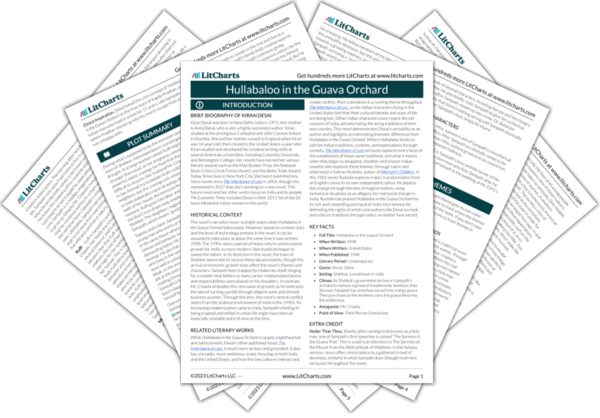Previous
Chapter 20
|
Previous
Chapter 20
|
Hullabaloo in the Guava Orchard: Chapter 21 Summary & Analysis |
Next
Chapter 22
|


Upgrade to unlock the analysis and theme tracking for all of Hullabaloo in the Guava OrchardHullabaloo in the Guava Orchard!
Get LitCharts A+